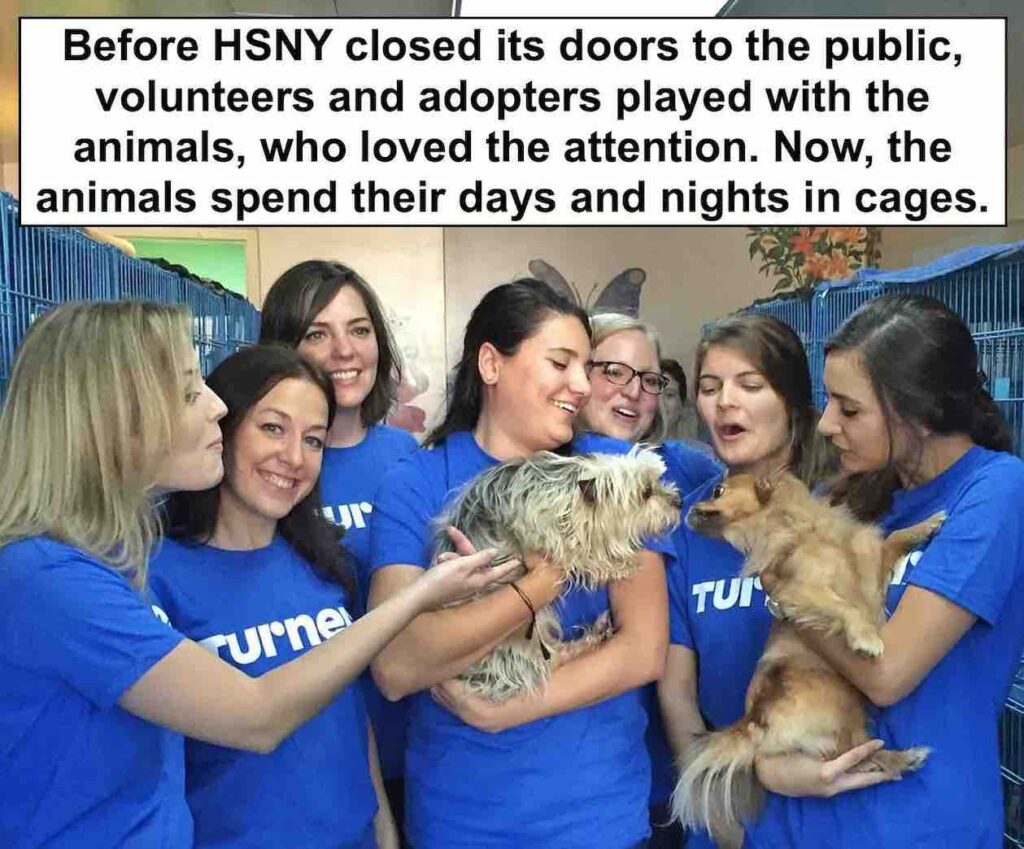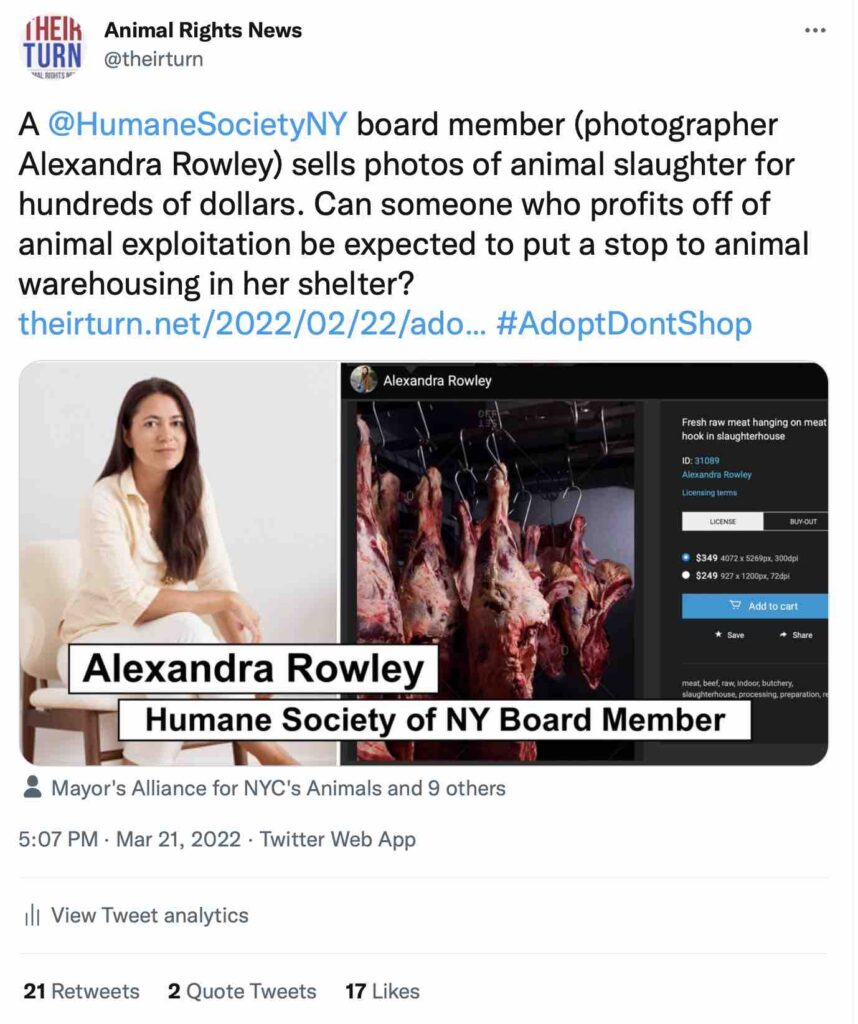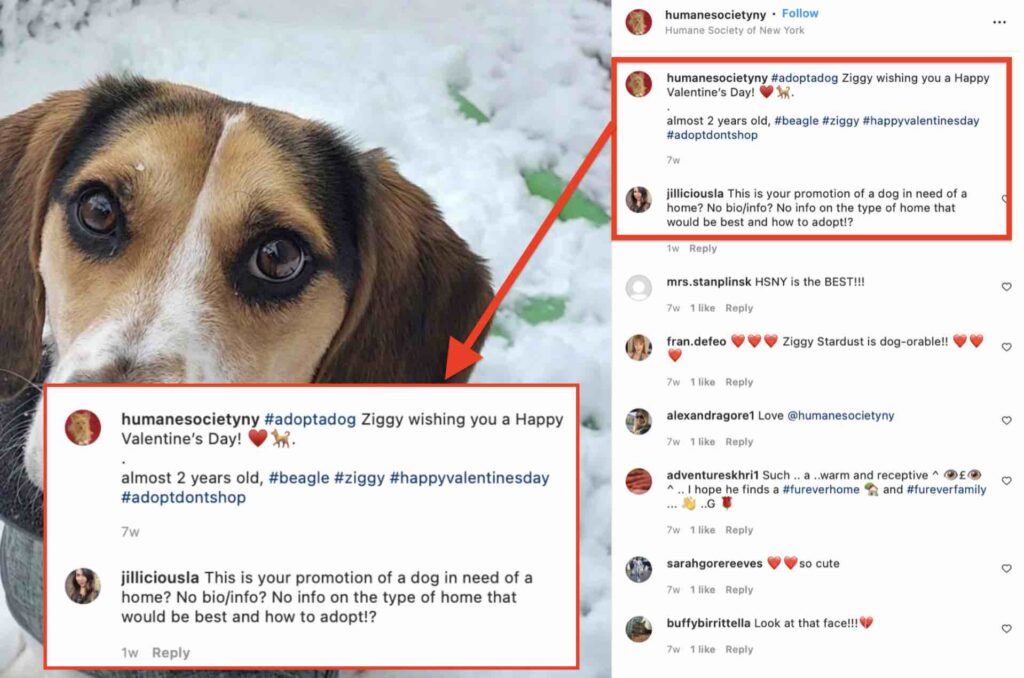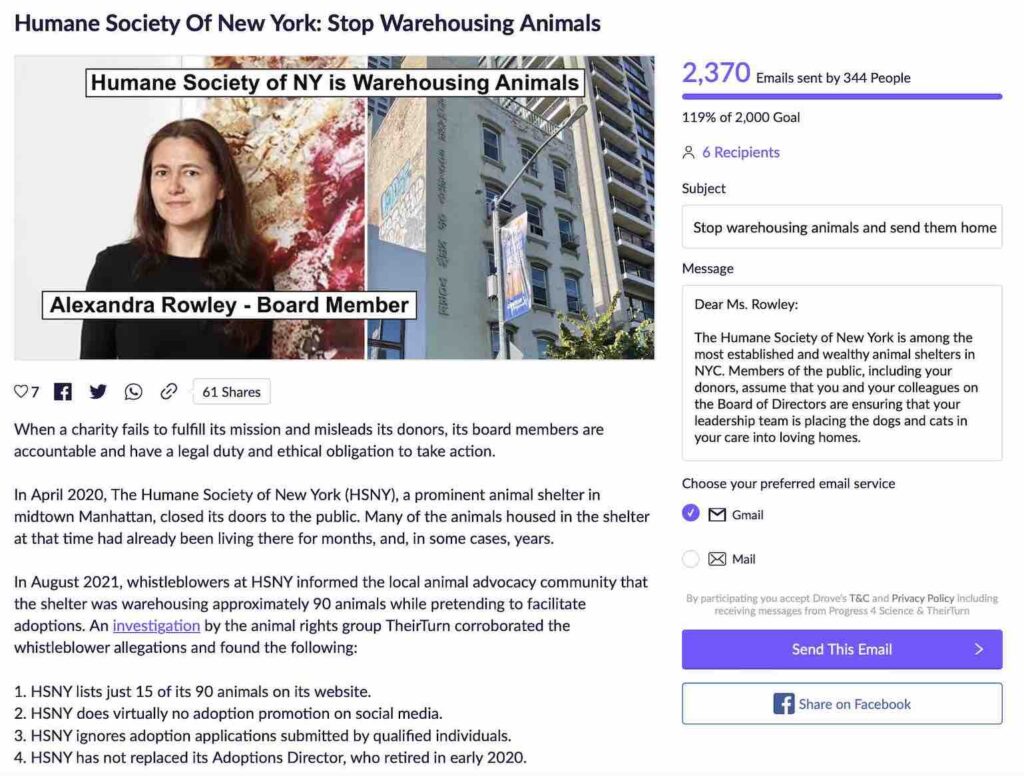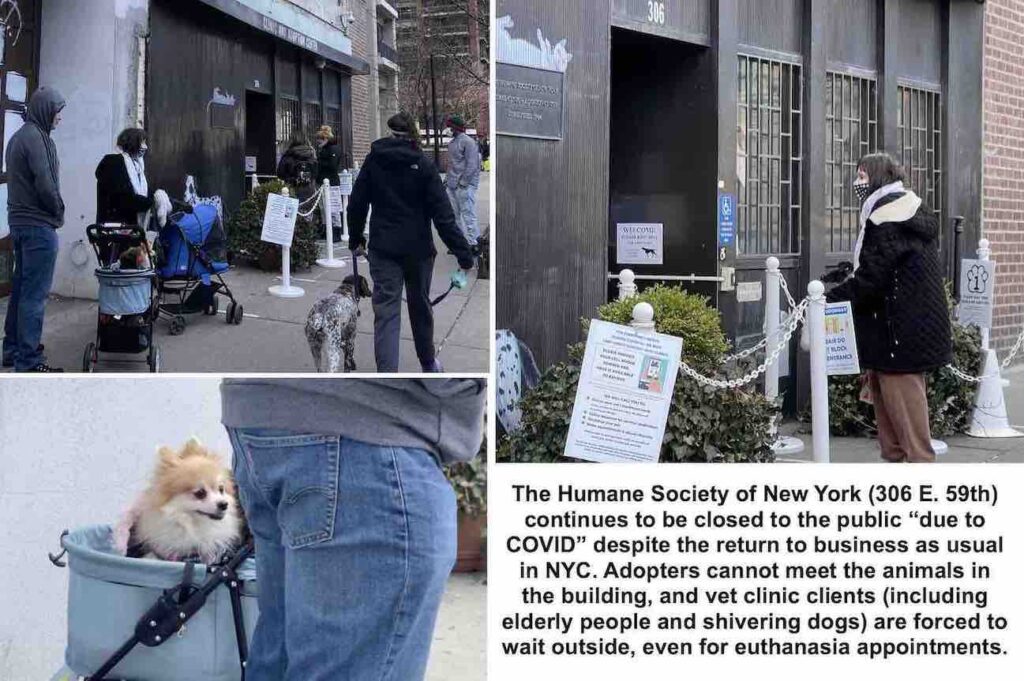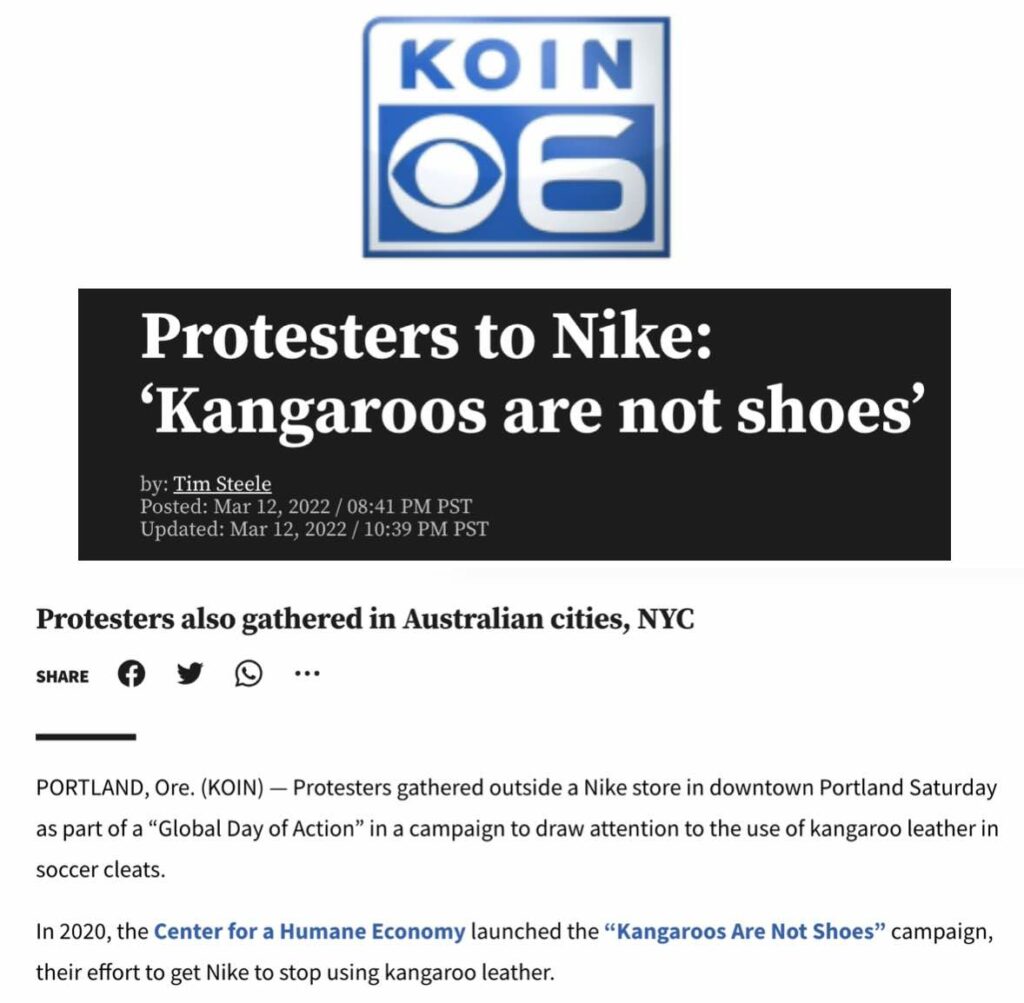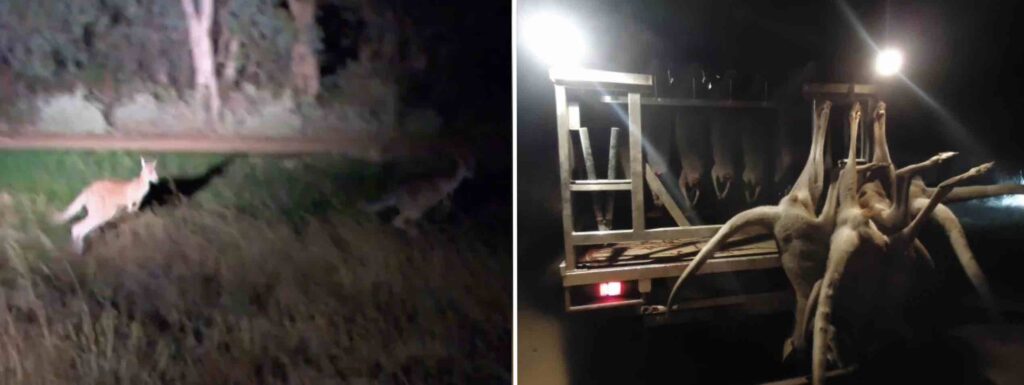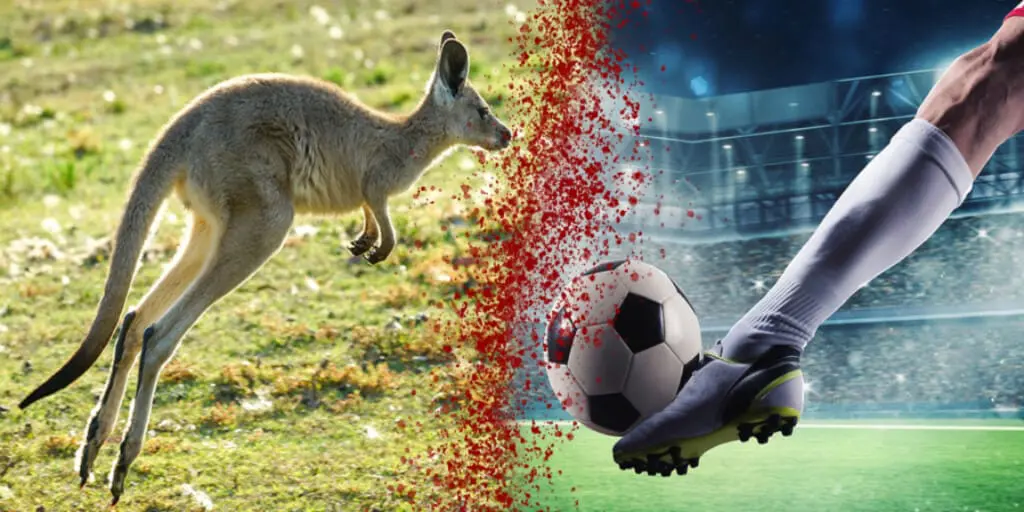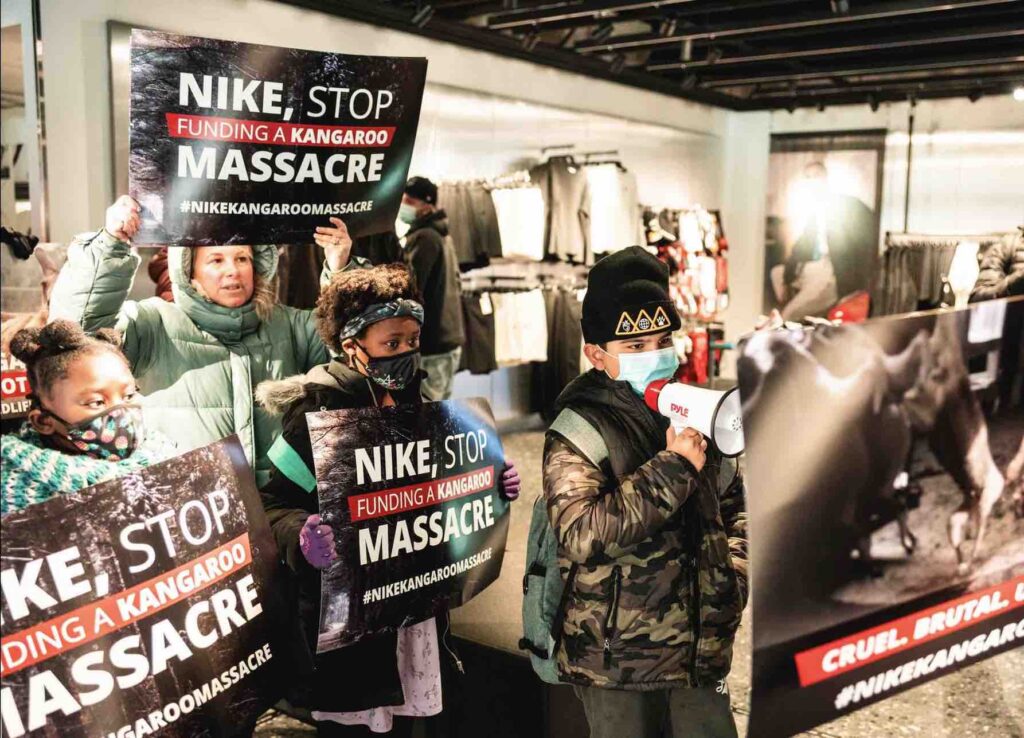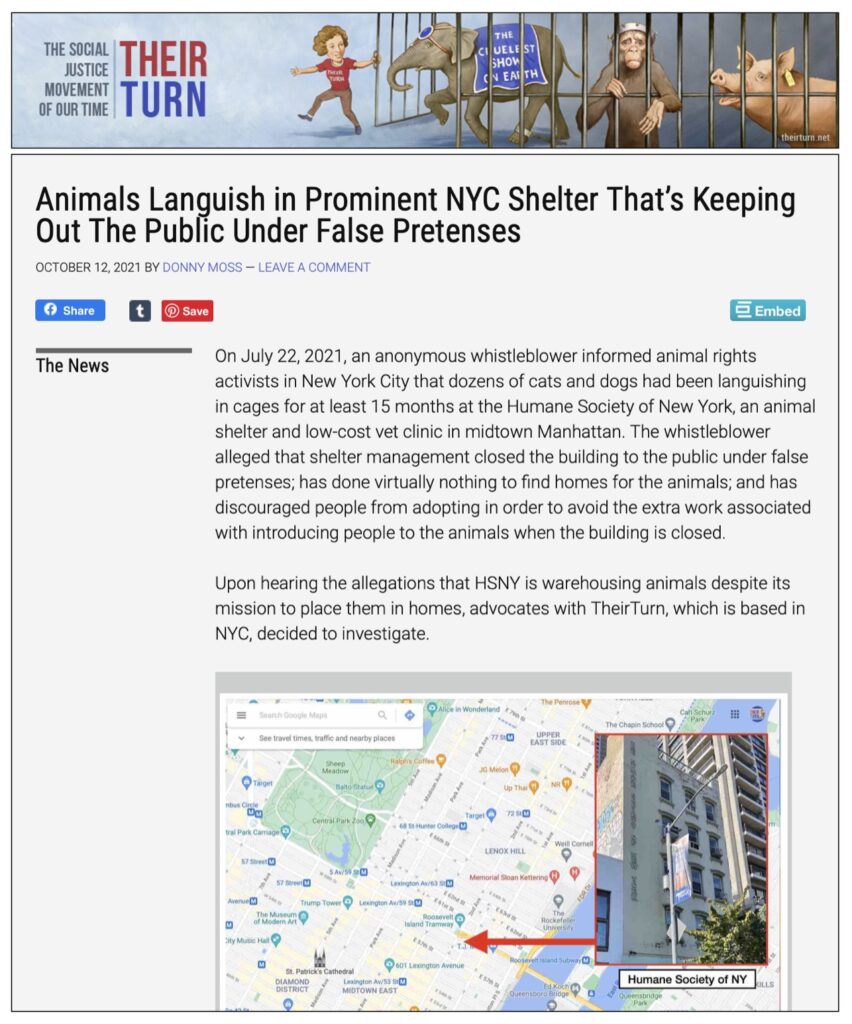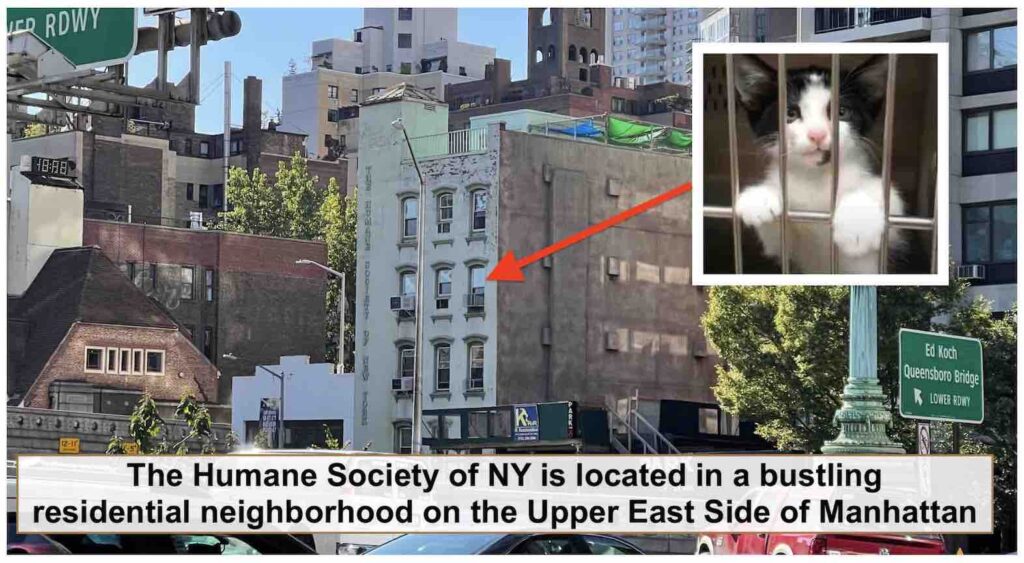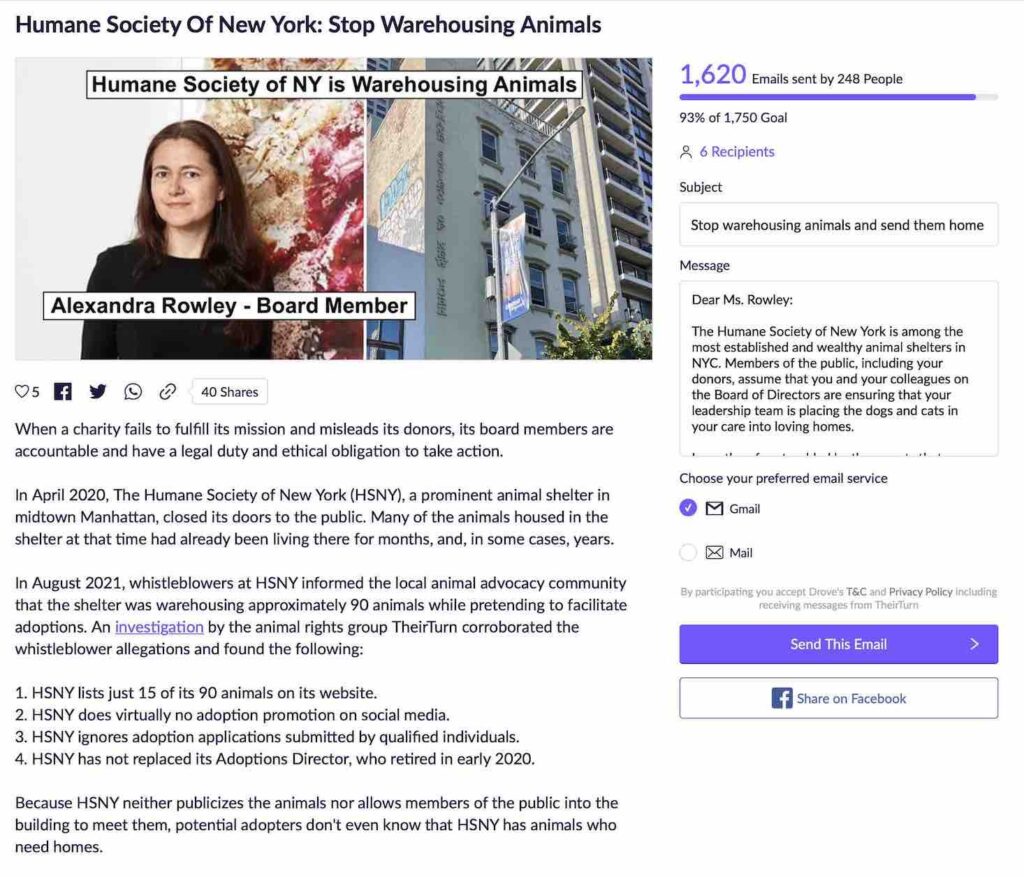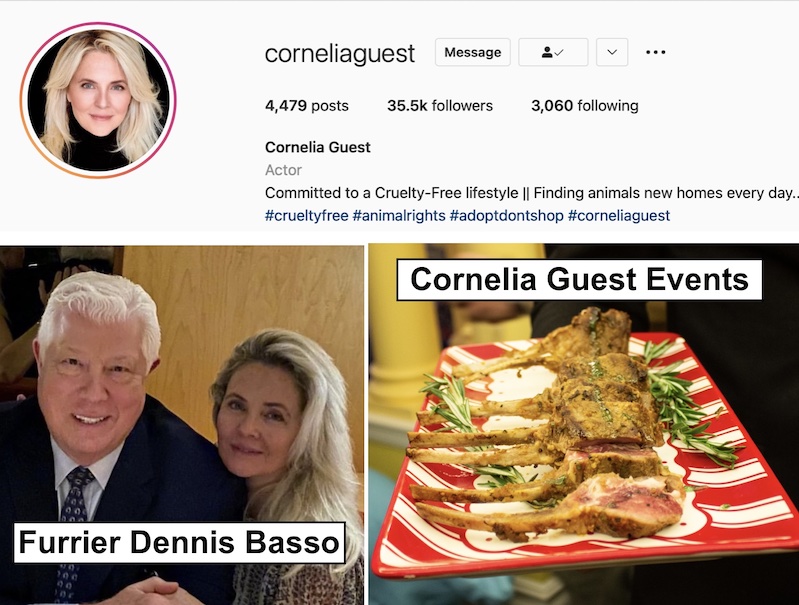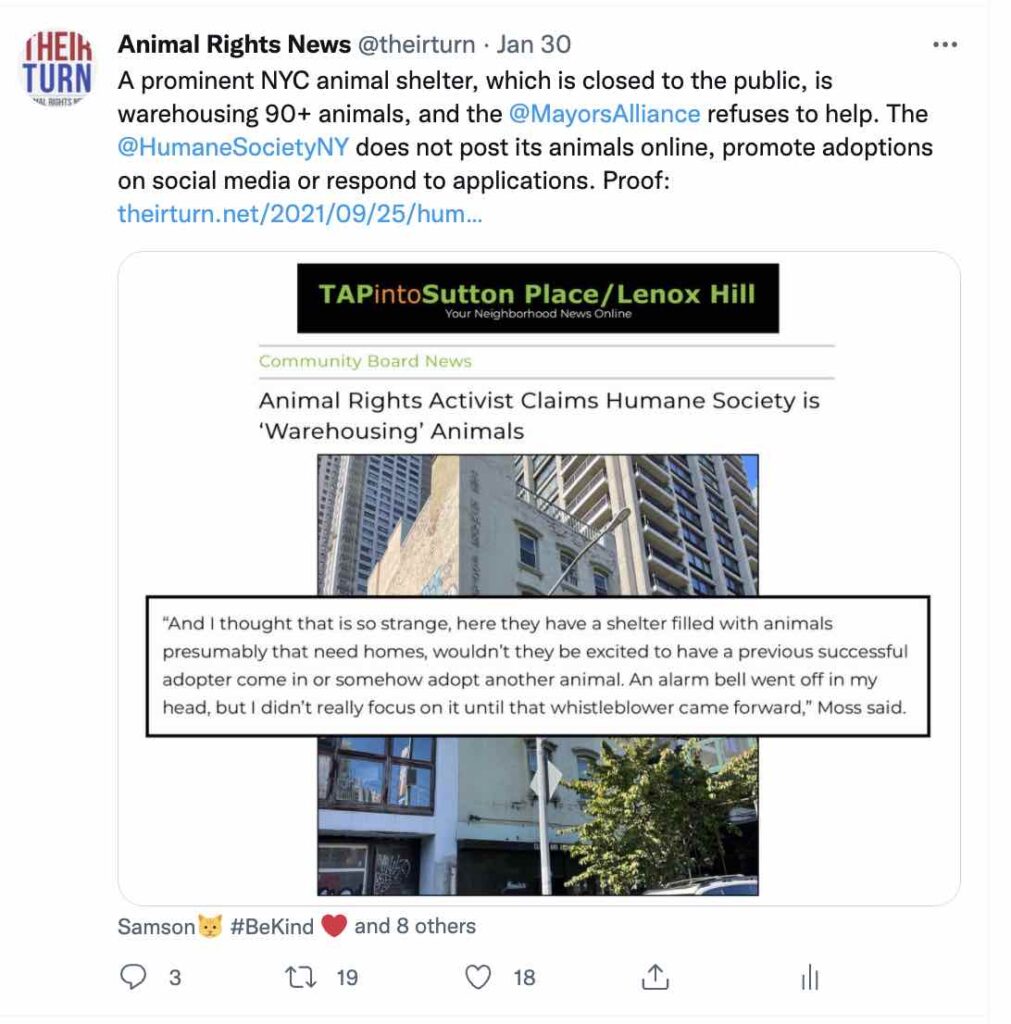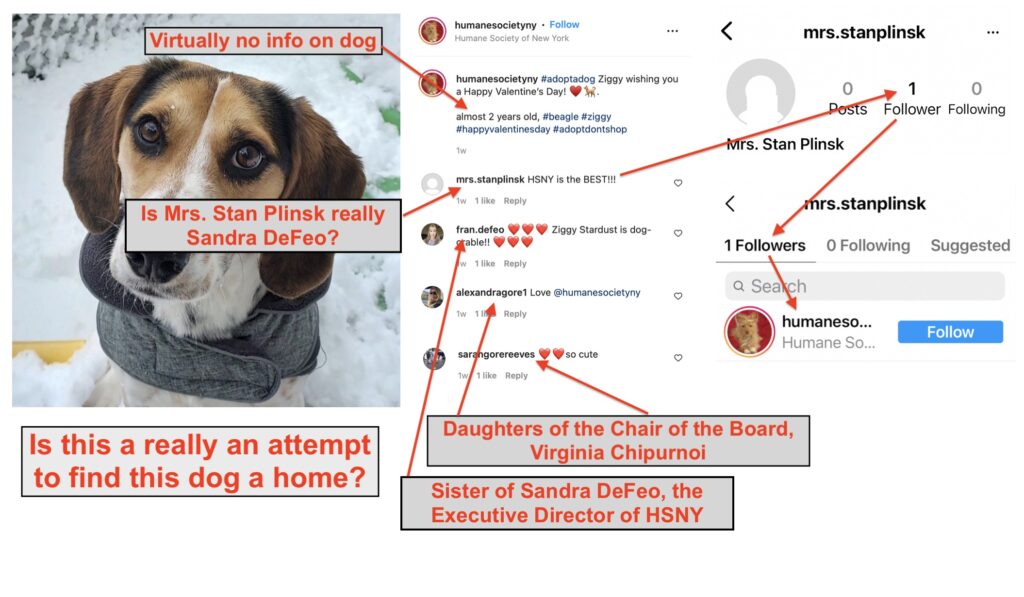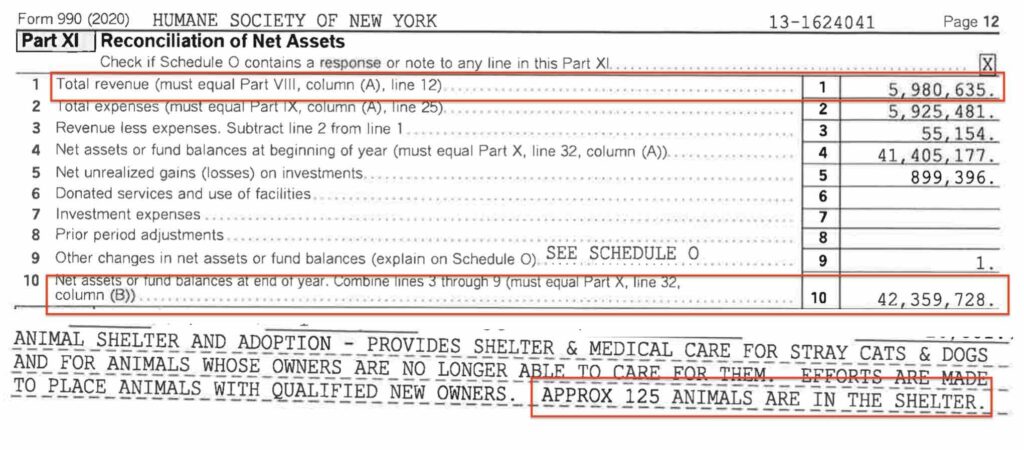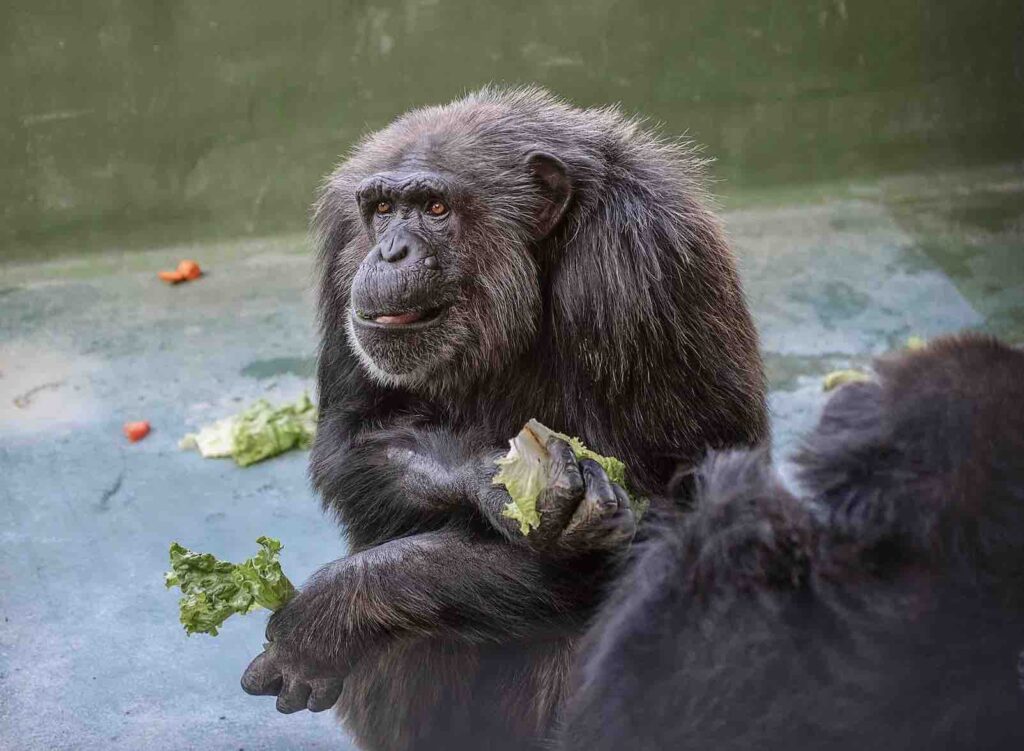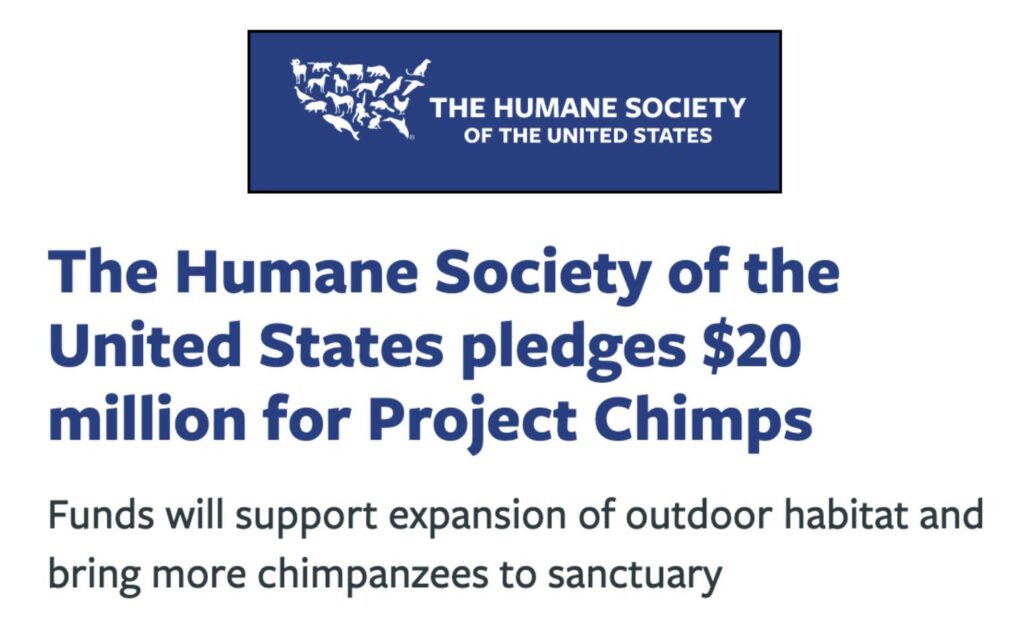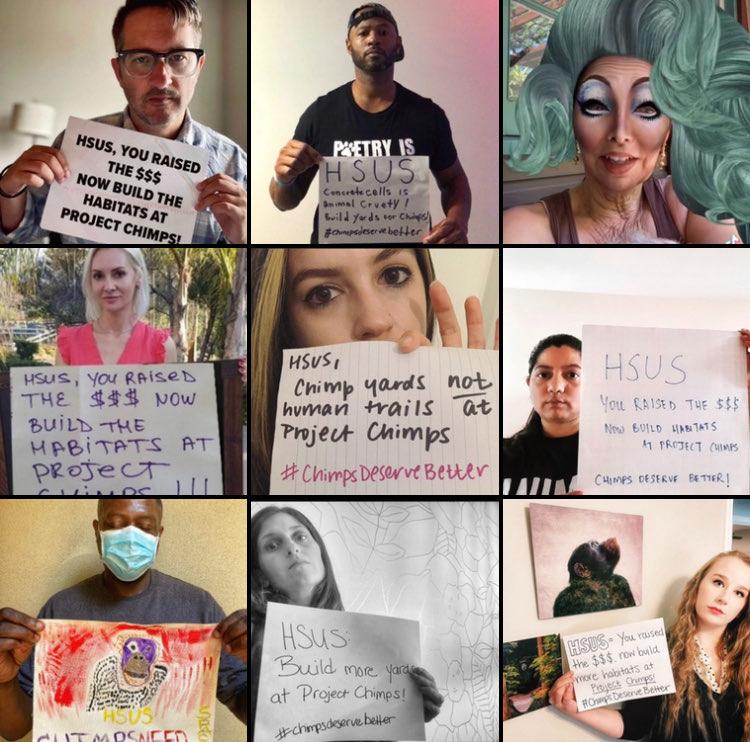Avian Flu Outbreak Prompts Calls for Suspension of Live Animal Market Operations Near Schools
The News
The outbreak of avian flu has prompted parents in New York City to call on the mayor and governor to suspend the operation live animal markets, particularly those near their children’s schools and playgrounds. In a letter shared with the media, the parents argue that the markets, which sell and slaughter multiple species of birds, potentially expose their children to a host of infectious diseases, including e. Coli, campylobacter and the current strain of avian flu, which has infected people in several countries, including the United States.
“The sidewalk in front of the live animal market next to my son’s school is often contaminated with chicken feces and blood,” said Irma Labiosa, one of the public school parents who signed the letter to Mayor Adams and Governor Hochul. “He could be tracking this waste into his classroom, onto the subway and into our home.”
Brooklyn’s leading newspaper, The Brooklyn Eagle, published the letter in full.
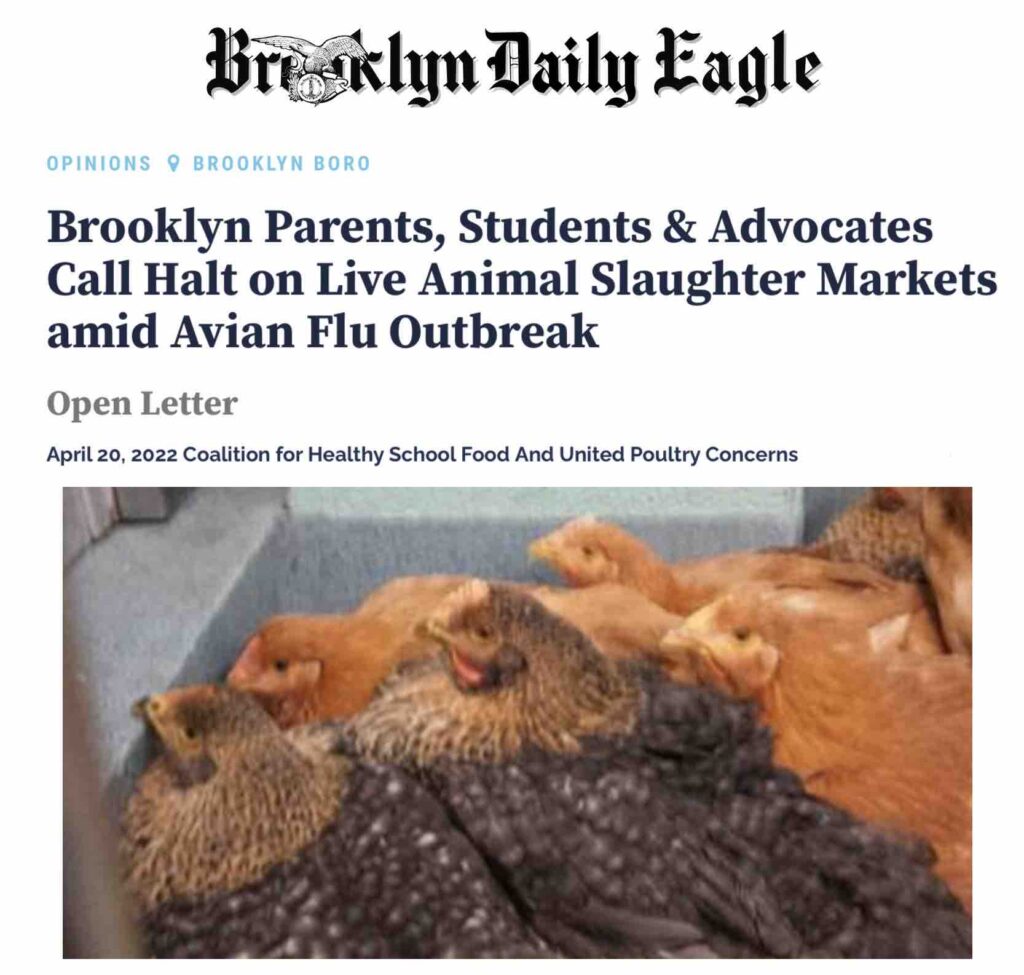
The Brooklyn Daily Eagle published a letter sent by parents of NYC schoolchildren calling on Governor Kathy Hochul and Mayor Eric Adams to suspend the operation of live animal markets near schools until an avian flu risk assessment is conducted.
New York City’s 70+ live animal markets, also known as storefront slaughterhouses, are retail businesses that are open to the public. Many operate in densely populated neighborhoods and are located in close proximity to homes, health care facilities, businesses, public transportation, schools and playgrounds. Despite the biohazards, customers are not required to wear PPE to protect themselves and the animals from disease. Among the 10 or more bird species slaughtered in these markets are chickens, turkeys, ducks, geese, pigeons, quails and pheasants.
“For years, I have been documenting and reporting dead chickens left in open dumpsters and puddles of blood and feces contaminating the sidewalks and streets in front of live animal markets in Queens,” said Edita Birnkrant, the Executive Director of the animal advocacy group NYCLASS. “The filthy sidewalks and putrid odors compromise the quality of life of everyone who lives and works in their vicinity and pose health risks, along with serious animal welfare violations that go ignored. That is why NYCLASS supports passage of state legislation that would prohibit the operation of these neighborhood slaughter markets and create a task force to investigate the public health risks and animal welfare concerns.”
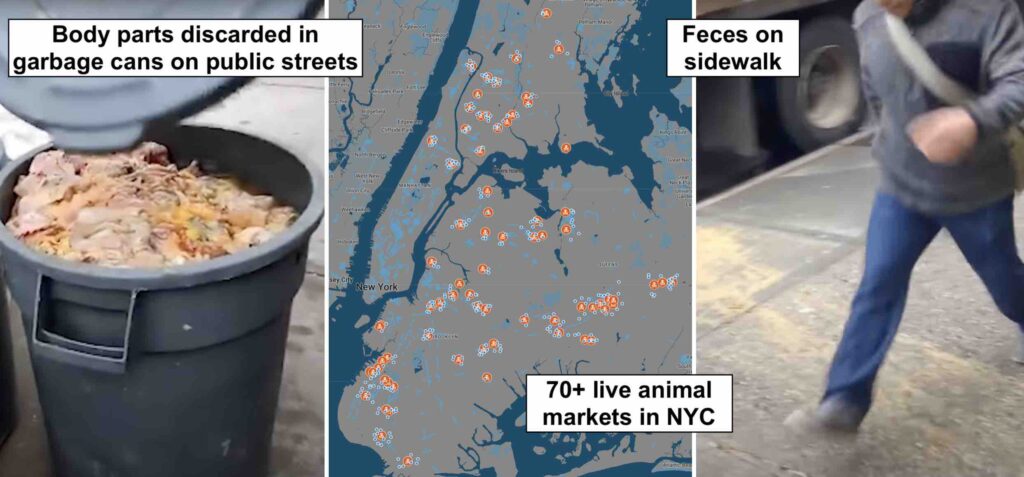
The sidewalks in front of NYC’s live animal slaughter markets, many of which are located near schools and playgrounds, are often contaminated with feces and body parts
In response to the recent avian flu outbreak in New York in March 2022, the NY State Department of Agriculture and Markets banned the operation of fowl shows, auctions and exhibitions. In his announcement about the ban, Richard Ball, the Commissioner, stated, “By banning fowl shows and exhibitions in New York until further notice, we are taking a commonsense step to limit the co-mingling of birds to slow the spread of this disease.” Labiosa, the school parent, believes this ban should apply to New York’s live markets too. “Given how tightly confined the animals are, avian flu could spread like wildfire if an outbreak occurs in a live animal market,” said Labiosa. “They should not be exempt.”
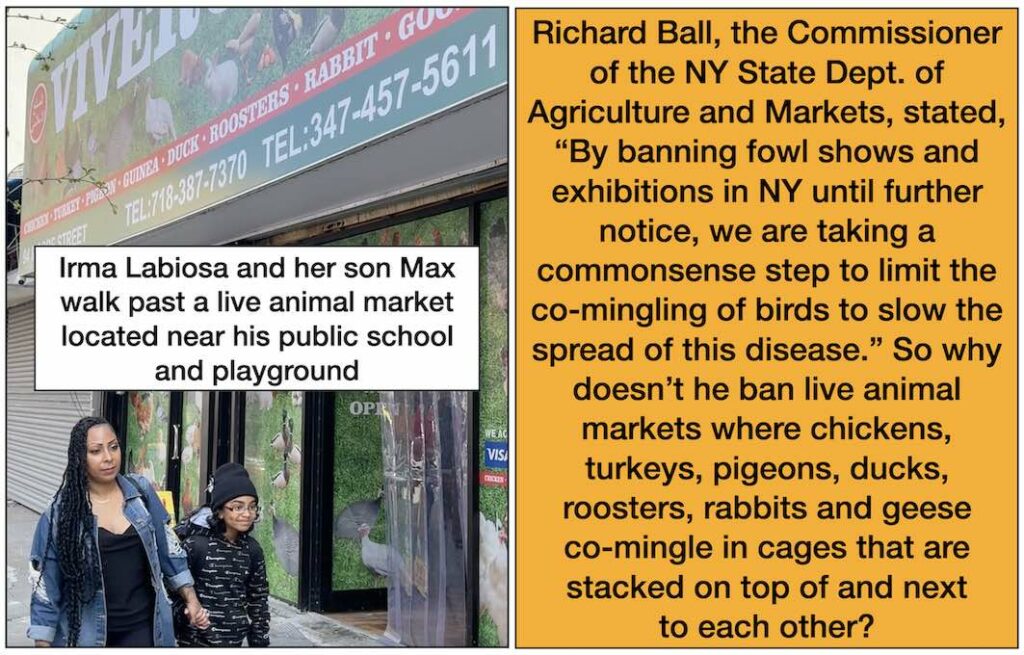
Irma Labiosa and her son Max walk by a live animal market located one block away from Max’s public school in New York City
Across the street from the live animal market near her son’s school, Labiosa told TheirTurn that she believes that the presence of live animal markets in lower-income areas is a form of environmental racism. “Wealthy New Yorkers would never allow slaughterhouses to operate in their neighborhoods, but lower income communities don’t have the resources to fight back,” said Labiosa.
Labiosa’s son, Max, is also disturbed by the live animal market near his school, though, while speaking to TheirTurn, he expressed more concern about the mistreatment of animals than getting sick: “I’ve seen trucks stuffed with chickens, ducks and other birds. It makes me sad to see them treated that way.” Neither Labiosa nor Max eat meat anymore.
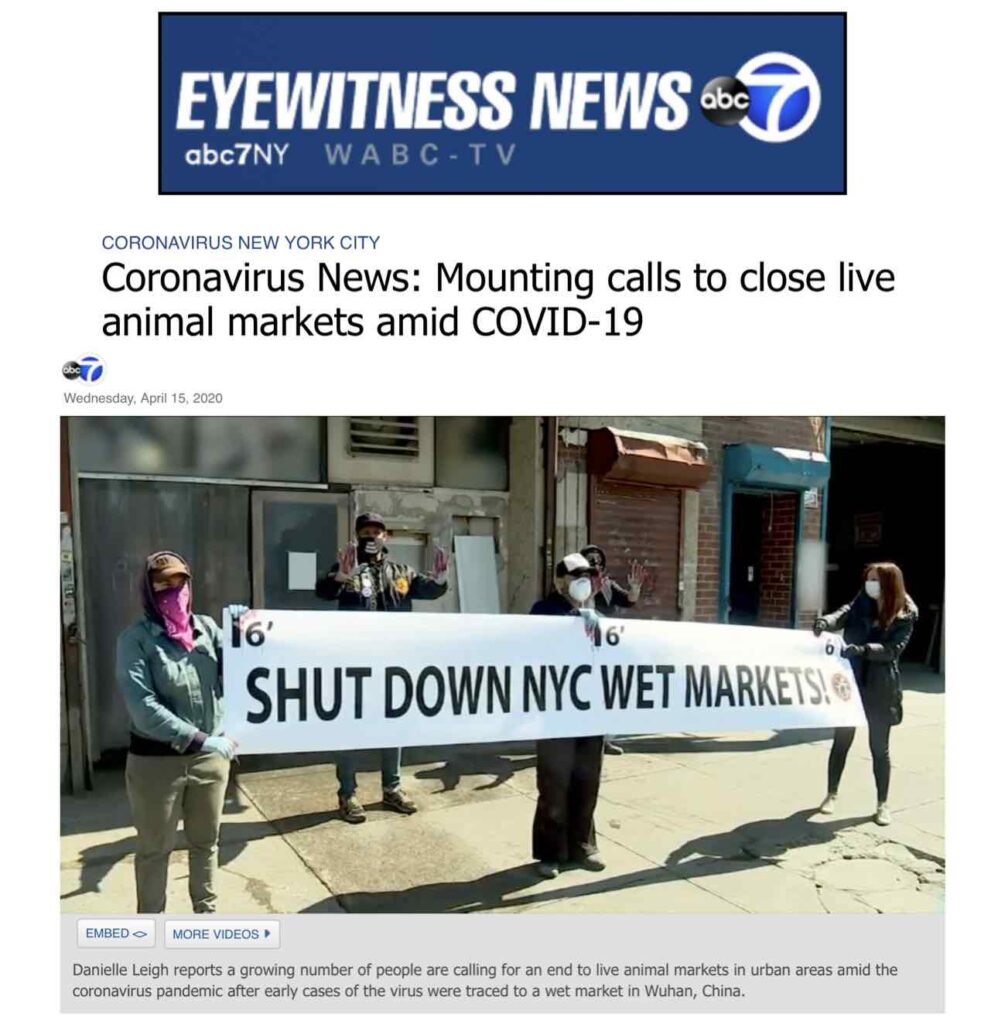
When COVID-19 reached New York, mainstream media outlets reported on the ongoing efforts of the advocacy Slaughter Free NYC to shut down the City’s 70+ live animal markets (click photo to view ABC News story)
Since 2019, Slaughter Free NYC, an advocacy group comprised of public health and animal rights advocates, has been calling on city and state officials to shut down the city’s 70+ live markets until a public health risk assessment is conducted. The group believed that the outbreak of COVID, which is believed to have been transmitted to humans in a live animal market, would trigger them to take its concerns more seriously, but they did not react. In fact, instead of shutting down the live markets, the state designated them as “essential businesses” during the lock down in March 2020.
Despite the government’s decision to ignore the calls of Slaughter Free NYC, the COVID outbreak did generate widespread mainstream media coverage about the risks of live animal markets and the advocacy group’s efforts to shut them down. In July 2020, Now This released a 10 minute documentary film (Here’s What Goes on Inside America’s Wet Markets) that went viral on social media.





